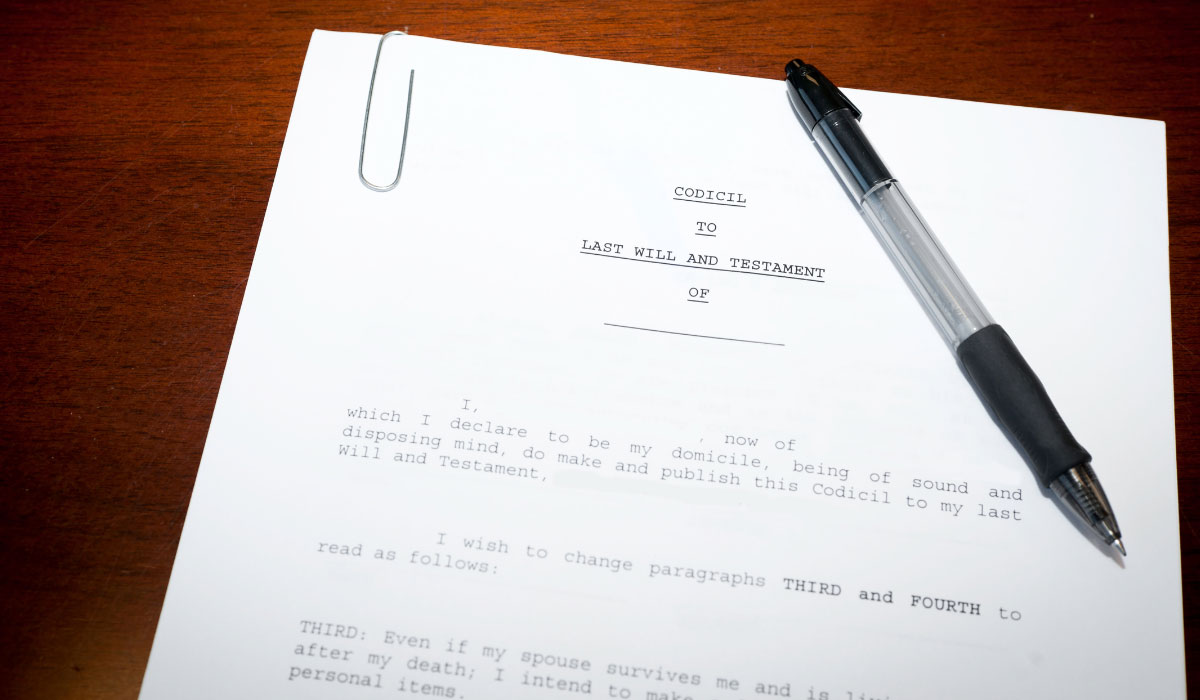A last will and testament is a legal document that states your final wishes for your assets and estate. Commonly, the will you originally create will need to be amended or modified as life circumstances change. For example, births, marriages, divorces, and deaths often result in one’s testamentary wishes to change. It is crucial when making a change or revocation to your will that the required formalities are followed. In many instances people attempt to modify their will by crossing out and writing over provisions on the document itself. Others may attempt to draft a new will on their own but fail to follow the proper procedures. In both of these examples, the changes would not legally take effect, nor would the person’s prior will be revoked.
Under Rhode Island law, you can make a change to your will by executing a codicil, which is a separate document that dictates any amendments or modifications to your prior will (or codicil) you wish to make. The Rhode Island Supreme Court has held that an alteration in a will, either by substitution or cutting out, cannot effectively be made except by a properly executed codicil. Nelen v. Nelen,161 A. 121, 122 (1932). A codicil must be executed in the same manner as a will requiring two witnesses and a notary.
Under Rhode Island law, you can revoke your will by:
- properly executing a new will;
- declaring an intention to revoke the will in writing, however this writing must again be executed in the same manner as a will; or
- burning, tearing, or otherwise destroying the will with the intent to revoke the will.
If you decide to revoke your will by burning, tearing, or otherwise destroying the will, you should make certain that the will is destroyed intentionally by the testator, along with any copies. Courts have strictly construed the statute that provides a testator may revoke their will by burning, tearing, or otherwise destroying, and the Rhode Island Supreme Court has held that a testator marking out every word with a red pencil and writing her initials, the word obliterated, and the date by each clause, does not revoke the will.
If you have questions or need assistance with making changes to your current will or estate plan, please contact Attorney Katherine B. Dunn at 401-824-5100 or kdunn@pldolaw.com.


